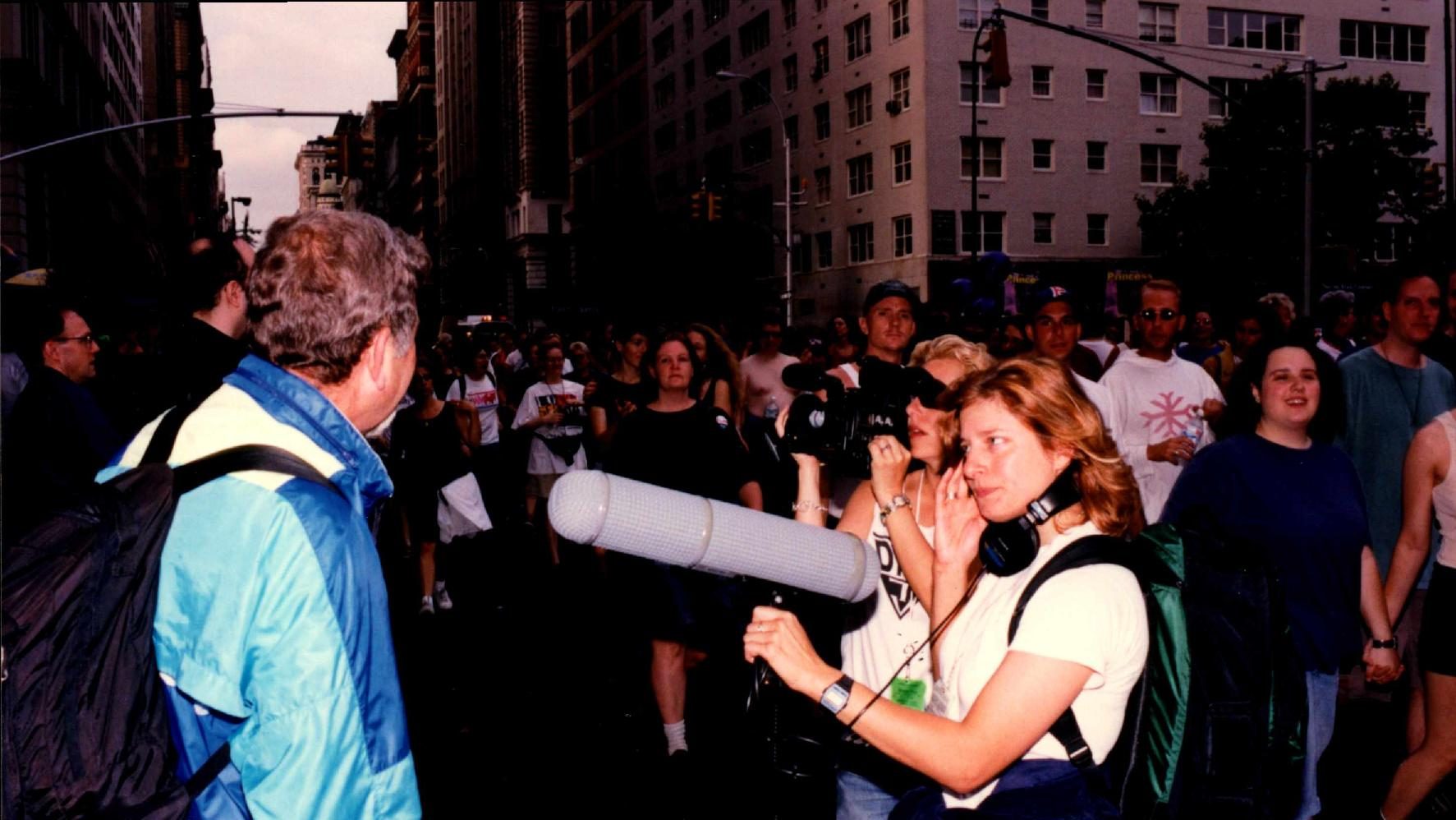Lesbians are no different from straight people physiologically, but they remain more likely to develop breast cancer due to a combination of behavioral factors and mistrust of the medical system. It was this disparity that inspired Audre Lorde to write her Cancer Journals and articulate the need for a political response to breast cancer a decade before her death from the disease in 1992.1
Over the years, Dyke TV would take up this task by airing numerous segments on the silent epidemic of breast cancer among lesbians. Dyke TV provided lesbian viewers with vital information on when and why to seek medical help, how to perform a self-breast exam, and risk factors to be aware of.
Watch the following clip. Then, take the quiz below to test what you have learned.
In this 2002 Eyewitness segment, Karen Schmitt of Columbia’s Cancer Research Center explains some things to be aware of when examining your breasts.2
Dyke TV’s programming also addressed the ways that women and lesbians frequently have trouble getting medical help due to the healthcare system’s refusal to acknowledge their pain. In the following clip, Jane Podolak of Northampton, Massachusetts describes the way she was dismissed when she suggested that her breast cancer may have returned, only to find out later that her suspicions were correct.3
Segments like this one validated the frustrations and challenges lesbians faced in dealing with the healthcare system, allowing viewers to find solace in their shared struggles to find support for their health.
Footnotes:
- “About,” Callen-Lorde, https://callen-lorde.org/about/. ↩
- Dyke TV, Episode 255, 2002, Dyke TV Records, Sophia Smith Collection, Northampton, Massachusetts. ↩
- Ibid. ↩
